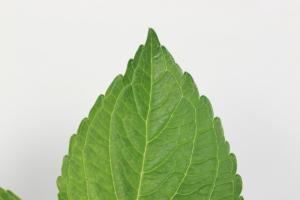What Medicinal Properties Does the Olive Tree Plant Have?
Olive trees are one of the most ancient and revered plants and have been cultivated for thousands of years for their fruit and oil. They were also valued for their medicinal properties, which have been documented throughout history. The olive tree contains various compounds that make it an important natural remedy for many health issues. In this article, we'll explore the medicinal properties of the olive tree plant and its various components.
Antioxidant Properties
First, olive leaves and olive oil have potent antioxidant activity. Studies have shown that olive leaves contain high levels of polyphenols, which are antioxidants that help protect cells from damage. Olive oil also contains polyphenols, as well as vitamin E and other antioxidants. Together, these compounds help reduce oxidative stress in the body, which has been linked to various diseases, such as cancer, heart disease, and Alzheimer's disease. Therefore, consuming the olive tree plant can help prevent these diseases and promote overall health.
Anti-inflammatory Properties
Olive leaves and olive oil also have anti-inflammatory properties, which make them useful in treating inflammatory conditions such as arthritis and asthma. The main compound responsible for this anti-inflammatory activity is oleocanthal. It works by inhibiting enzymes that cause inflammation in the body, thus reducing pain and swelling. Furthermore, oleuropein, another compound in olive leaves, has been found to have anti-inflammatory effects that can help protect against chronic inflammatory diseases.
Anti-cancer Properties
The olive tree plant also contains compounds that have anti-cancer properties. Oleocanthal, for example, has been shown to induce cancer cell death and prevent the growth and spread of cancer cells. It works by breaking down membranes that protect cancer cells and causing them to die. Additionally, studies have shown that hydroxytyrosol, a compound found in olive oil, has anti-cancer effects by inhibiting the growth of cancer cells and promoting their death.
Anti-microbial Properties
The olive tree plant has also been found to have anti-microbial properties. This means that it can help fight against bacteria, viruses, and fungi that cause infections. Olive leaves contain compounds that have been shown to inhibit the growth of various bacteria, including those that cause food poisoning and urinary tract infections. Additionally, olive oil has been found to have anti-viral properties, particularly against the flu virus. Therefore, consuming the olive tree plant can help boost the immune system and protect against infections.
Conclusion
In conclusion, the medicinal properties of the olive tree plant are vast and varied. It has antioxidant, anti-inflammatory, anti-cancer, and anti-microbial properties, making it a valuable natural remedy for many health issues. The compounds in the plant work together to protect cells from damage, reduce inflammation, fight cancer cells, and prevent infections. Therefore, incorporating the olive tree plant into your diet and lifestyle can help promote overall health and well-being.

 how many times do yo...
how many times do yo... how many planted tre...
how many planted tre... how many pine trees ...
how many pine trees ... how many pecan trees...
how many pecan trees... how many plants comp...
how many plants comp... how many plants can ...
how many plants can ... how many plants and ...
how many plants and ... how many pepper plan...
how many pepper plan...































